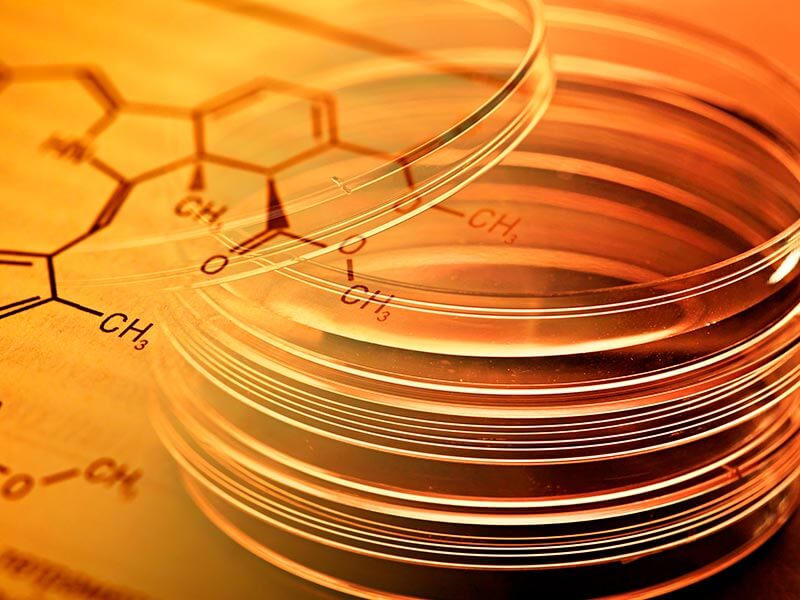New and innovative methods for the conversion of alkanes to olefins and aromatics
Take part into the first webinar jointly organised by the C123, ZEOCAT-3D and BIZEOLCAT EU-funded projects to discuss the latest developments in their common topic
Barcelona, 12 April 2021 – Project partners, stakeholders and interested citizens gather online on 13 April 2021, at 9 am (CET time), to exchange lessons learned and advancements in the three flagship projects funded under the European Commission (EC) topic CE-NMBP-24-2018 - Catalytic transformation of hydrocarbons (RIA).
All approved in 2019 under the EC Horizon 2020 Research and Innovation Programme, the BIZEOLCAT, C123 and ZEOCAT-3D projects have since been working on innovative and greener ways to convert alkanes into olefins and aromatics, with a total budget of EUR 19,689,231.
Aimed at improving the European industry’s competitiveness through new, energy-efficient technologies that steadily reduce carbon emissions, and at increasing the production and use of novel and scalable catalytic processes able to handle feedstock variability, the three projects focus on employing natural gas, stranded resources and biogas for chemical conversion, thus paving the way to reduce the refinery sector’s dependence on fossil fuels.
Widely used alkanes, such as methane, ethane, propane and butane, are fundamental in a variety of industry and daily life applications. Their transformation into olefins, the likely of ethylene, propylene and butadiene, or aromatics, including benzene, naphthalene and toluene, increases their chances of being employed industrially, extending alkane’s value chain to a myriad of possibilities.
When these projects were financed, the advanced chemical conversion, storage and transportation of sustainable energy sources was recognised as playing a key role in enabling the EU to develop a low-carbon economy and provide greater technologic flexibility. Since then, opportunities for the use of energy vectors have multiplied.
Optimising energy demand and selectivity in building-up propylene from methane and carbon dioxide, the C123 project is opening up new ways to its production, likely leading to the abandonment of the energy intensive steam cracking process. Joris Thybaut from Ghent University, Jordan Guillermot from CNRS, and Mieke Nieder-Heitmann from the Process Design Centre will introduce the audience to the valorisation of methane resources by using catalysis for methane’s oxidative conversion. They will also present the project’s process and techno-economic analysis.
Sharing their experiences from working on the ZEOCAT-3D project, Maria Tripiana (Project Coordinator) from IDENER, Vesna Middelkoop from VITO and Themistoklis Sfetsas from BEN will be presenting how 3D printed catalysts can bring the conversion of methane into aromatics to a new level, for application in the biogas industry and beyond.
Finally, Ana Villacampa (Project Coordinator) from Fundació Eurecat, Fausto Gallucci from Eindoven University of Technology and Blaž Likozar from the Slovenian National Institute of Chemistry will explain how the BIZEOLCAT project is setting up membrane reactors for dehydrogenation reactions, also applying multi-scale process modelling.
Questions and interventions from the participants will be welcomed during the presentations, while conclusive remarks will be delivered by the project coordinators, including C123’s Richard Heyn from SINTEF, to wrap up the dialogue.
Today’s climate and energy challenges require refining to fully evolve into a cleaner process. The ZEOCAT-3D, BIZEOLCAT, and C123 projects demonstrate that, if it starts from cleaner resources and applies innovative, energy efficient and sustainable processes, greener refining is already a reality.
Join the conversation to learn more about these ground-breaking projects: Click here!
Follow us on ZEOCAT-3D’s Twitter account for live updates during the event!
***
C123 is validating currently largely available and unexploited methane resources by an efficient and selective transformation into C3 hydrocarbons, particularly aiming at propylene. The breakthrough innovation is that propylene is not produced via the very energy intensive steam cracking process, but rather by the less energy demanding and more selective build-up from methane and carbon dioxide.
The goal of the project ZEOCAT-3D is the development of a new bi-functional structured catalysts, achieving for the first time a tetramodal pore size distribution (micro-, meso1-, meso2-, macro-porous) and high dispersion of metal active sites for the conversion of methane, coming from different sources as natural gas and biogas, into high value chemicals such as aromatics (benzene, naphthalene, among others) via methane dehydroaromatization (MDA).
The BIZEOLCAT project addresses the need for lowering the carbon footprint of refining industry in a sustainable economy approach. It will develop 4 new processes and membrane reactors to convert alkanes (methane, propane and butane) into olefins (propylene, butadiene) and aromatics.
***
Review the event's detailed agenda here: https://www.sintef.no/en/events/webinar-new-and-innovative-methods-for-the-conversion-of-alkanes-to-olefins-and-aromatics/
More information on the featured projects are available on their websites:
C123: https://www.sintef.no/projectweb/c123/
ZEOCAT-3D: https://www.zeocat-3d.eu/
BIZEOLCAT: https://www.bizeolcat.eu
***
Updates following the webinar...

Download all presentations:
ZEOCAT-3D:
BIZEOLCAT:
C123's:
- C123: Valorizing Methane Resources into C3 Building Blocks (Joris Thybault, Ugent)
- Oxidative conversion of methane on shaped catalyst (Jordan Guillemot, CNRS)
- C123 Techno-economic and sustainability assessment of process routes to C3 products from methane (Mieke Nieder-Heitmann, PDC)
And don’t forget to visit ZEOCAT-3D’s new Multi-Stakeholder Platform!
